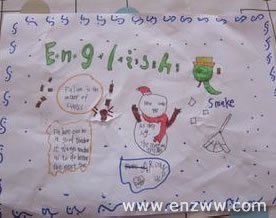心真的会“碎”吗?
Hearts Actually Can Break
Dorothy Lee and her husband of 40 years were driving home from a Bible study group one wintry night when their car suddenly hit the curb. Mrs. Lee looked at her husband, who was driving, and saw his head bob a couple of times and fall on his chest.
In the ensuing minutes, Mrs. Lee recalls, she managed to avoid a crash while stopping the car, called 911 on her cellphone and tried to revive her husband before an ambulance arrived. But at the hospital, soon after learning her husband had died of a heart attack, Mrs. Lee's heart appeared to give out as well. She experienced sudden sharp pains in her chest, felt faint and went unconscious.
When doctors performed an X-ray angiogram expecting to find and treat a blood clot that had caused Mrs. Lee's symptoms, they were surprised: There wasn't any evidence of a heart attack. Her coronary arteries were completely clear.
Doctors eventually determined that Mrs. Lee had suffered from broken-heart syndrome, a name given by doctors who observed that it seemed to especially affect patients who had recently lost a spouse or other family member. The mysterious malady mimics heart attacks, but appears to have little connection with coronary artery disease. Instead, it is typically triggered by acute emotion or physical trauma that releases a surge of adrenaline that overwhelms the heart. The effect is to freeze much of the left ventricle, the heart's main pumping chamber, disrupting its ability to contract and effectively pump blood.
The phenomenon is a 'concussion' of the heart, says Scott Sharkey, a cardiologist at Minneapolis Heart Institute. 'It's really a heart attack which is triggered by stress rather than by a blocked artery,' he says.
For reasons that aren't fully understood, the problem, formally known as stress-induced cardiomyopathy, afflicts mostly women after menopause. The syndrome is relatively uncommon, accounting for an estimated 1% to 2% of people -- and about 6% of women -- who are diagnosed with a heart attack. In addition to such common emotions as grief and anger, doctors say broken-heart syndrome has been triggered by a person's anxiety over making a speech, a migraine headache or the emotional response to a surprise party. It can be fatal on occasion, but for the most part patients recover quickly, with no lasting damage to their hearts.
In a conventional heart attack, an obstructed artery starves the heart muscle of oxygenated blood, quickly resulting in the death of tissue and potentially permanently compromising heart function. In contrast, the heart muscle in broken-heart-syndrome patients is stunned in the adrenaline surge and appears to go into hibernation. Little tissue is lost. 'The cells are alive, but mechanically or electrically disabled,' Dr. Sharkey says.
Mrs. Lee's heart was so weakened by her episode in 2005 that she nearly died. The 63-year-old required a special balloon pump to support her left ventricle during the first couple of days in the hospital. But Mrs. Lee, who runs her own clothing repair business in a Minneapolis suburb, was discharged within five days. Despite cautions by her doctors, she attended her husband's funeral a few days later. 'I was able to work through my grief both positively and spiritually,' she says. 'I have no effects of [the heart episode] today.'
When patients are hospitalized with broken-heart syndrome, their hearts might be pumping at as little as 20% efficiency, a mark of serious heart failure, says Chet Rihal, a cardiologist and director of the catheterization clinic at Mayo Clinic, Rochester, Minn. But within 48 to 72 hours, many recover to the 60% level that is considered healthy. 'It's remarkable how quickly this will occur and how quickly they will recover,' he says.
Joozone Note:Ron Winslow
hxw.red
